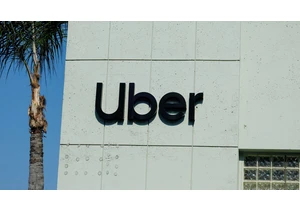Just a couple of years ago, pundits were warning of streaming’s demise. From Netflix to Spotify, these companies were burning through cash. How could they keep operating?
Now, almost all of the streamers have made it to positive profits. Netflix is the envy of the entertainment industry, while its underlings like Disney+ and Max have also turned around their losses. Last Tuesday, Spotify shares jumped 13% after the company announced its first full year of profitability. There are still stragglers, but on the whole, streaming has formed itself into a successful business model.
There’s a lesson here: For emerging tech, there’s value in patience. It took streaming over a decade to get it right, to effectively combine user growth and ad sales in a way that manifested profits. We should expect the same from all of our tech innovators.
How streaming became profitable
In the late 2010s, things weren’t looking positive for Netflix. Sure, they were making positive profits, but their debt was staggering. The company had amassed $15 billion in long-term debt by the end of 2020; compared to quarterly profits of just around $1 billion, Netflix seemed ready to capsize. CNN’s headline at the time: “Netflix is burning through cash. This can’t last forever.”
Now, everyone wants to be Netflix. Their profit margin is now 22%, earning $8.71 billion last year in profits (from some $39 billion in revenue). Remarkably, the business is expanding. They added a record-breaking 19 million subscribers in the fourth quarter of 2024, mostly thanks to the live fight between Jake Paul and Mike Tyson. And their ad tier, which used to be a tiny subsidiary of their business, is now scaling rapidly. It’s good to be in the business of Netflix.
The smaller streamers, once the butt of Wall Street’s jokes, are now reaching profitability. Max eked out its first positive profit of $103 million in 2023. Compare that to 2020, where WarnerMedia blamed their $1.2 billion in losses on investments in the streamer. Disney’s streaming division, which compromises both Disney+ and Hulu, just reached their second straight quarter of profitability. In 2022, the division was losing the company over $3 billion.
Now, Spotify has joined the club. For years, Spotify failed to put up positive profits. Their losses reached a peak in the second quarter of 2023, when Spotify lost about $256 million. The Wired headline from that year: “Spotify is Screwed.” Now, they’ve reached a full year of positive profits.
The virtue of patience with emerging tech
The sheer scale of money lost made streamers an easy target. In 2020, when Netflix was saddled with some $15 billion in long-term debt, the company also had a marketcap of $238.89 billion. How could we so blindly trust a company that was burning through money? But these are long-term bets, and the bets eventually paid off.
The same could be true for dozens of emerging tech fields of today. Look at AI. OpenAI, the golden child of the industry, lost $5 billion in 2024. And they keep taking on more money, most recently $6.6 billion in new investments and a $4 billion line of credit. How can we justify this? But AI companies (OpenAI chief among them) are betting on the future. AI might not be profitable now, but it will be.
It’s hard to trust OpenAI CEO Sam Altman when he makes these grand claims. But, if streaming is any indication, he could be right. The tech market demands patience; not just months of it, but years.
Login to add comment
Other posts in this group

Hackers linked to Russia’s government launched a cyberattack last spring

In a time where tariff price hikes are invading seemingly every

Remember the viral “Ice Bucket Challenge” of 2014? Over a decade later, it’s back—

The U.S. Federal Trade Commission on Monday sued Uber Technologies, accusing it of signing up some Uber One subscribers without their knowled

As Big Tech kicks off its quarterly earnings season this week, the industry’s bellwether companies have been thrust into a cauldron

Weeks ahead of his death, Pope Francis dedicated this month’s prayer intention to

Remember when TikTok went nuts for “Dubai chocolate”? Well, that fervor is now causing an international shortage of pistachios.
The trend took off in 2023 when food reviewer Maria Vehera
